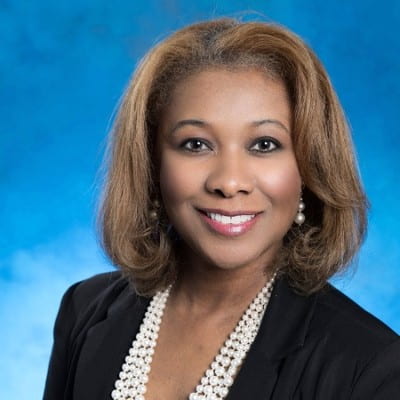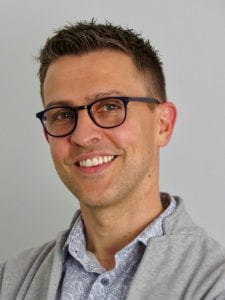Why do we join professional associations? The simple answer is that they bring together people who do similar work — but in different organizations and places — for networking, education, and career development. Those are the tangible benefits of membership. On a more strategic level, associations set the ethical standards for a profession; they define the values that help guide our behavior on-the-job.
 Like so many other organizations, the International Association of Business Communicators (IABC) has focused in the past few months on the meaning of diversity, equity, and inclusion (DE&I).
Like so many other organizations, the International Association of Business Communicators (IABC) has focused in the past few months on the meaning of diversity, equity, and inclusion (DE&I).
In one of our recent Thought Leader webcasts, two members of IABC’s task force on DE&I, Dr. K. Dawn Rutledge and Neil Griffiths, discussed the work of the task force and the state of the communication profession more generally. Dawn Rutledge, a Northeastern and College of Professional Studies alumna, has had a long and distinguished communication career and is now a consultant and educator. Read about her career journey and views on diversity in the communication profession. Neil Griffiths, ABC, Chart.PR, IABC Fellow, is the Global Head of Diversity, Equality & Inclusion at ERM, the world’s largest sustainability consultancy and served as chair of the task force. Neil’s background is varied, having spent the better part of 20 years in a series of external, brand, strategy and internal communication roles, before moving into the DE&I space. In 2019, Neil was named IABC Fellow, the highest honor bestowed on an IABC member.

The work of the IABC task force
Neil Griffiths (NG): We identified lots of areas where we as an association can do more and do better, and we were fairly unapologetic as well in highlighting those areas. We submitted something something like 100 recommendations to the International board in late 2020. Like most associations, we rely on the work of hundreds of volunteers. So, it was important to submit our recommendations in order to influence the process of sourcing and recruiting volunteers at all levels of the organization.
The second part of the task force’s work was around how we weave DE&I into the fabric of the association. What can we do to make sure that it is just the way that we operate – that goal will take much longer to achieve.
Dawn Rutledge (DR): We also looked at our channels of communication and how effectively we were using them to convey our DE&I messages. We are also exploring ways to build relationships with external partners who are serving underrepresented groups. A very concrete goal is to build bridges to the next generation of professional communicators and encourage them to get involved in IABC’s work.
What’s happening at the chapter level
NG: So much of IABC’s member engagement takes place at the local level, in chapters across the globe. For that reason, the role of the chapters in driving awareness of DE&I is of paramount importance. And to be quite honest, a lot more has been happening at the chapter level than we’re even aware of.
DR: I have to toot the horn of my IABC chapter in Nashville. Our board has made a point of including DE&I on our meeting agendas, and we’ve offered professional development programs on the subject. In conjunction with Black History Month, we used our social media channels to highlight the contributions of African Americans to the local chapter and the field of communications.
The business case for diversity and inclusion in the communication profession
DR: The reality is that we live in a diverse society within an inter-related global community. You need diverse voices around the table, voices that can speak to a wide range of audiences. And it involves more than simply hiring more people with diverse backgrounds – the real challenge is to make them feel part of the organization, to include them in the decision-making process.
NG: I agree completely. There is a bottom-line impact associated with DE&I practices. But lately, I’m seeing organizations focusing on business risk. What do I mean by that? Stakeholder expectations have shifted fundamentally inside and outside organizations, especially in the past year. There is a major risk for organizations that ignore those expectations, those demands for greater social equity. As professional communicators, we have such a critical role in being super connected to stakeholder expectations, what people are thinking, what people are feeling. And advising our organizations on how best to respond.
I really feel like the journey is just as important, if not potentially more important, than the destination of true DE&I. If we’re not telling the story, if we’re not bringing those stakeholders who now have massively different expectations of organizations along with us on this journey, we’ve really failed in our communication responsibilities.
How to encourage young people from under-represented groups to consider careers in communication
DR: Trust is critical. I teach my strategic communications class about the importance of trust when you are trying to build a relationship with any stakeholder group. in a society now where social media and disinformation are everywhere, discerning what’s real and what’s not real, what’s trustworthy, becomes a priority of organizations like IABC that want to engage young people.
Another critical factor is mentoring. I’ve had the opportunity to mentor a number of newcomers to the communication profession over the years, and it can make such a difference. It can give someone new to what is a very competitive field a sense of belonging, a sense of how best to navigate a career path and build a network.
NG: Dawn is so right about the importance of mentoring. We have to let them know that there’s a place for them. It’s uncomfortable being one of the only people of any kind in a room and I’ve lived that myself, so I you know I know the discomfort that can bring. You can talk about those feelings with a mentor and process them.
DR: You know there are so many ways for us to elevate the work of diversity, equity, and inclusion – so many ways for us to get creative. Don’t be afraid to ask questions and have uncomfortable conversations, because I think that’s the only way we’re going to grow, learn and, of course, get better in this whole process.
Posted by Carl Zangerl, Faculty